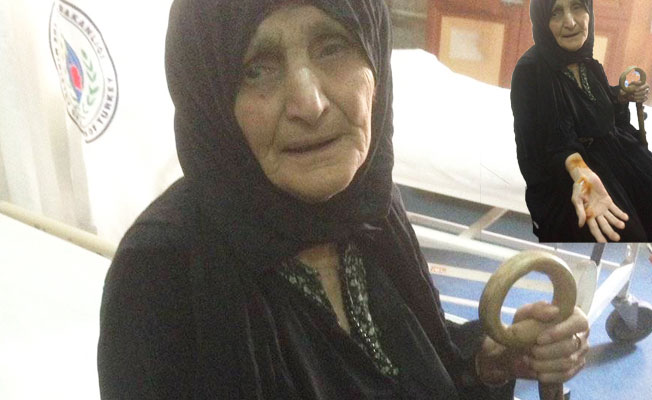Turkish Parliament Speaker Rejects Motion to Investigate Torture
Turkish Parliament Speaker has rejected a motion submitted by a People’s Democracy Party (HDP) lawmaker seeking an official investigation into the torture of villagers by security forces.
In pursuit of militants from Kurdistan Workers’ Party (PKK) in operation this summer, Turkish troops laid siege to Altunsu village of Semdinli district in the southeastern province of Hakkari.
But the curfew that blocked movement of villagers into and out of the village led to widespread claims of torture as soldiers questioned the residents of the village to learn whereabouts of suspected PKK militants.
HDP lawmakers obtained photographs of villagers who were hospitalized after mistreatment and beating. The photographs sparked public outrage and rights groups demanded an official investigation into the torture of villagers.
HDP lawmaker Lezgin Botan brought the incident to Parliament’s agenda. The lawmaker submitted two parliamentary questions to the office of Parliament Speaker Ismail Kahraman, seeking answers to the claims into the rise of torture against civilians.
He asked Mr. Kahraman and Prime Minister Binali Yildirim to learn that whether an investigation was launched into the claims about the torture of the villagers. His second motion was about the increasing widespread torture against citizens across the country.
Mr. Kahraman’s office returned both motions on the ground that those questions cannot be asked according to the 97th article of Parliament law, which regulates the working of the assembly.
The article absolves the government members and Parliament Speaker of the responsibility of responding questions of lawmakers when the issue concerns Turkey’s national security, top classified state secrets and other high-level information that needs to be kept classified, even from lawmakers.
The justification for the rejection comes as a surprise because the incident was publicly known as photographs and hospital reports already documented signs of torture.
The practice reminds the 1980 coup era and early 1990s when rights groups and lawmakers systematically faced hurdles in delving into allegations of torture and mistreatment in prison.
Wrapped under the national security rubric, the authorities did not allow lawyers or politicians to look into controversial cases that involved torture.




Comments are closed.